I have personally found some errors in when using unix_timestamp based date converstions from dd-MMM-yyyy format to yyyy-mm-dd, using spark 1.6, but this may extend into recent versions. Below I explain a way to solve the problem using java.time that should work in all versions of spark:
I've seen errors when doing:
from_unixtime(unix_timestamp(StockMarketClosingDate, 'dd-MMM-yyyy'), 'yyyy-MM-dd') as FormattedDate
Below is code to illustrate the error, and my solution to fix it.
First I read in stock market data, in a common standard file format:
import sys.process._
import org.apache.spark.sql.SQLContext
import org.apache.spark.sql.functions.udf
import org.apache.spark.sql.types.{StructType, StructField, StringType, IntegerType, DateType}
import sqlContext.implicits._
val EODSchema = StructType(Array(
StructField("Symbol" , StringType, true), //$1
StructField("Date" , StringType, true), //$2
StructField("Open" , StringType, true), //$3
StructField("High" , StringType, true), //$4
StructField("Low" , StringType, true), //$5
StructField("Close" , StringType, true), //$6
StructField("Volume" , StringType, true) //$7
))
val textFileName = "/user/feeds/eoddata/INDEX/INDEX_19*.csv"
// below is code to read using later versions of spark
//val eoddata = spark.read.format("csv").option("sep", ",").schema(EODSchema).option("header", "true").load(textFileName)
// here is code to read using 1.6, via, "com.databricks:spark-csv_2.10:1.2.0"
val eoddata = sqlContext.read
.format("com.databricks.spark.csv")
.option("header", "true") // Use first line of all files as header
.option("delimiter", ",") //.option("dateFormat", "dd-MMM-yyyy") failed to work
.schema(EODSchema)
.load(textFileName)
eoddata.registerTempTable("eoddata")
And here is the date conversions having issues:
%sql
-- notice there are errors around the turn of the year
Select
e.Date as StringDate
, cast(from_unixtime(unix_timestamp(e.Date, "dd-MMM-yyyy"), 'YYYY-MM-dd') as Date) as ProperDate
, e.Close
from eoddata e
where e.Symbol = 'SPX.IDX'
order by cast(from_unixtime(unix_timestamp(e.Date, "dd-MMM-yyyy"), 'YYYY-MM-dd') as Date)
limit 1000
A chart made in zeppelin shows spikes, which are errors.

and here is the check that shows the date conversion errors:
// shows the unix_timestamp conversion approach can create errors
val result = sqlContext.sql("""
Select errors.* from
(
Select
t.*
, substring(t.OriginalStringDate, 8, 11) as String_Year_yyyy
, substring(t.ConvertedCloseDate, 0, 4) as Converted_Date_Year_yyyy
from
( Select
Symbol
, cast(from_unixtime(unix_timestamp(e.Date, "dd-MMM-yyyy"), 'YYYY-MM-dd') as Date) as ConvertedCloseDate
, e.Date as OriginalStringDate
, Close
from eoddata e
where e.Symbol = 'SPX.IDX'
) t
) errors
where String_Year_yyyy <> Converted_Date_Year_yyyy
""")
//df.withColumn("tx_date", to_date(unix_timestamp($"date", "M/dd/yyyy").cast("timestamp")))
result.registerTempTable("SPX")
result.cache()
result.show(100)
result: org.apache.spark.sql.DataFrame = [Symbol: string, ConvertedCloseDate: date, OriginalStringDate: string, Close: string, String_Year_yyyy: string, Converted_Date_Year_yyyy: string]
res53: result.type = [Symbol: string, ConvertedCloseDate: date, OriginalStringDate: string, Close: string, String_Year_yyyy: string, Converted_Date_Year_yyyy: string]
+-------+------------------+------------------+-------+----------------+------------------------+
| Symbol|ConvertedCloseDate|OriginalStringDate| Close|String_Year_yyyy|Converted_Date_Year_yyyy|
+-------+------------------+------------------+-------+----------------+------------------------+
|SPX.IDX| 1997-12-30| 30-Dec-1996| 753.85| 1996| 1997|
|SPX.IDX| 1997-12-31| 31-Dec-1996| 740.74| 1996| 1997|
|SPX.IDX| 1998-12-29| 29-Dec-1997| 953.36| 1997| 1998|
|SPX.IDX| 1998-12-30| 30-Dec-1997| 970.84| 1997| 1998|
|SPX.IDX| 1998-12-31| 31-Dec-1997| 970.43| 1997| 1998|
|SPX.IDX| 1998-01-01| 01-Jan-1999|1229.23| 1999| 1998|
+-------+------------------+------------------+-------+----------------+------------------------+
FINISHED
After this result, I switched to java.time conversions with a UDF like this, which worked for me:
// now we will create a UDF that uses the very nice java.time library to properly convert the silly stockmarket dates
// start by importing the specific java.time libraries that superceded the joda.time ones
import java.time.LocalDate
import java.time.format.DateTimeFormatter
// now define a specific data conversion function we want
def fromEODDate (YourStringDate: String): String = {
val formatter = DateTimeFormatter.ofPattern("dd-MMM-yyyy")
var retDate = LocalDate.parse(YourStringDate, formatter)
// this should return a proper yyyy-MM-dd date from the silly dd-MMM-yyyy formats
// now we format this true local date with a formatter to the desired yyyy-MM-dd format
val retStringDate = retDate.format(DateTimeFormatter.ISO_LOCAL_DATE)
return(retStringDate)
}
Now I register it as a function for use in sql:
sqlContext.udf.register("fromEODDate", fromEODDate(_:String))
and check the results, and rerun test:
val results = sqlContext.sql("""
Select
e.Symbol as Symbol
, e.Date as OrigStringDate
, Cast(fromEODDate(e.Date) as Date) as ConvertedDate
, e.Open
, e.High
, e.Low
, e.Close
from eoddata e
order by Cast(fromEODDate(e.Date) as Date)
""")
results.printSchema()
results.cache()
results.registerTempTable("results")
results.show(10)
results: org.apache.spark.sql.DataFrame = [Symbol: string, OrigStringDate: string, ConvertedDate: date, Open: string, High: string, Low: string, Close: string]
root
|-- Symbol: string (nullable = true)
|-- OrigStringDate: string (nullable = true)
|-- ConvertedDate: date (nullable = true)
|-- Open: string (nullable = true)
|-- High: string (nullable = true)
|-- Low: string (nullable = true)
|-- Close: string (nullable = true)
res79: results.type = [Symbol: string, OrigStringDate: string, ConvertedDate: date, Open: string, High: string, Low: string, Close: string]
+--------+--------------+-------------+-------+-------+-------+-------+
| Symbol|OrigStringDate|ConvertedDate| Open| High| Low| Close|
+--------+--------------+-------------+-------+-------+-------+-------+
|ADVA.IDX| 01-Jan-1996| 1996-01-01| 364| 364| 364| 364|
|ADVN.IDX| 01-Jan-1996| 1996-01-01| 1527| 1527| 1527| 1527|
|ADVQ.IDX| 01-Jan-1996| 1996-01-01| 1283| 1283| 1283| 1283|
|BANK.IDX| 01-Jan-1996| 1996-01-01|1009.41|1009.41|1009.41|1009.41|
| BKX.IDX| 01-Jan-1996| 1996-01-01| 39.39| 39.39| 39.39| 39.39|
|COMP.IDX| 01-Jan-1996| 1996-01-01|1052.13|1052.13|1052.13|1052.13|
| CPR.IDX| 01-Jan-1996| 1996-01-01| 1.261| 1.261| 1.261| 1.261|
|DECA.IDX| 01-Jan-1996| 1996-01-01| 205| 205| 205| 205|
|DECN.IDX| 01-Jan-1996| 1996-01-01| 825| 825| 825| 825|
|DECQ.IDX| 01-Jan-1996| 1996-01-01| 754| 754| 754| 754|
+--------+--------------+-------------+-------+-------+-------+-------+
only showing top 10 rows
which looks ok, and I rerun my chart, to see if there are errors/spikes:

As you can see, no more spikes or errors. I now use a UDF as I've shown to apply my date format transformations to a standard yyyy-MM-dd format, and have not had spurious errors since. :-)


